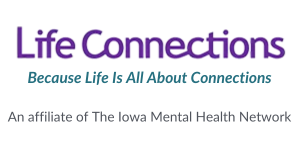As a parent it is inevitable for there to be disagreements or conflicts between you and your child. Whether or not conflict is common for your family, the way a parent responds can set the tone for future disputes, and overall communication within the family. Below are 5 effective strategies to keep in mind when resolving conflicts with your child(ren):
1. Respond rather than react
When approaching conflicts as a parental figure, it can be difficult to put your own emotions aside before discussing the issue at hand; especially if the situation has you triggered. Because of this, responding to a conflict may include taking a step back to gather yourself, ensuring you are emotionally stable before leading a problem solving conversation. When you are ready to respond, it is crucial to remember it is you and your child vs the problem, not you vs your child. With this mindset you are reminding yourself that the goal is to solve the problem at hand, rather than focus on who is right and who is wrong. By communicating using this perspective, you are also able to set an example for your child that having conflicts does not need to cause more stress within the family, but rather create a time to utilize healthy communication strategies and increase connection amongst family members.
2. Focus on one problem at a time
When a conflict arises within the family system, it can often be difficult to focus on just the topic at hand. A family member may find themselves digging up past conflicts or stressors that they feel are relevant to the conversation. If multiple problems are brought up at once everyone involved can become overwhelmed, and may cause an individual to feel targeted if issues surrounding them are continuing to be brought up. To avoid this from happening, remember to stay organized with your points and conversation in order to effectively solve one problem at a time. If you find yourself in a situation where the other person is continuing to identify other situations they are unhappy with, an appropriate response can sound like “Thank you for sharing your thoughts, I would be happy to discuss this after we have determined a solution to the problem currently being addressed”.
3. Utilize assertive communication strategies
When attempting to solve conflicts with anyone, utilizing assertive communication strategies are the most effective to help you communicate your wants and needs respectfully. Assertive communication skills include utilizing a calm, but firm tone of voice, and avoiding disrespectful language; as well as being honest and straightforward with others, rather than avoiding the problem or becoming aggressive. An important concept of assertive communication is utilizing I statements (I feel…when you…because…what I need…) By utilizing this structured sentence we are expressing our thoughts and identifying our needs, without pointing blame to others around us.
4. Show empathy
When solving conflicts it is important to utilize empathy for everyone involved, especially when discussing conflicts with children, as it is important they feel that they are being heard and valued as a person discussing the problem. Common ways you are able to show empathy include acknowledging what the other person is saying. Let them know you understand and thank them for sharing their thoughts. Additionally, actively listening (making eye contact, repeating back their comment, asking questions) also shows empathy.
5. Set Boundaries
Lastly, showing your child you are setting firm boundaries is an important part of conflict management. This can look different depending on the person, but overall includes identifying when there is disrespect exhibited, communicating what will be tolerated, saying “no” when needed, and taking breaks. By setting boundaries during conflict management you are also role modeling the importance of your children doing so when solving problems with family or peers. When taking breaks the parent is also communicating that it is important for each family member to take care of themselves rather than continue to attempt to solve the conflict and become burnt out.
These 5 strategies are just the beginning to effective conflict management within families. Some of these ideas may be new to you and feel uncomfortable to implement with your family; however when we keep in mind the idea that “practice makes perfect” we are able to understand that changes cannot happen overnight, but we have the ability to begin to create changes today.
Written By: Emily Krapfl, B.S,
Behavioral Health Manager
Because Life is All About Connections
Life Connections provides in-home Behavioral Health Intervention services, Therapy services, autism (ABA) services and Children’s Mental Health waiver services in our 13 office locations and approved schools across Iowa. Life Connections was founded in March of 2009 with the intent to serve the children and families of Cedar Rapids and surrounding cities.
Life Connections is a highly professional and caring counseling and behavioral health provider. We offer a wide array of services to treat mental health issues including Applied Behavior Analysis Services, anxiety treatment, Behavioral Health Intervention Services, Family and Community Support (FCS) Providers, depression treatment, family therapy, marriage and couples counseling, mental health therapy, school-based therapy programs, and Tele-Mental Health.
For more information, please call 319-409-6922.
Resources:
- National Suicide Prevention Hotline 800-273-8255
- Crisis Text line text to 741741
- The Trevor Project – for LGBTQ+ young adult community 866-488-7386
- Rape, Abuse, and Incest National Network 800-656-4673
Start Your Services
Start Mental & Behavioral Health Services with Life Connections | Because life is all about connections.

